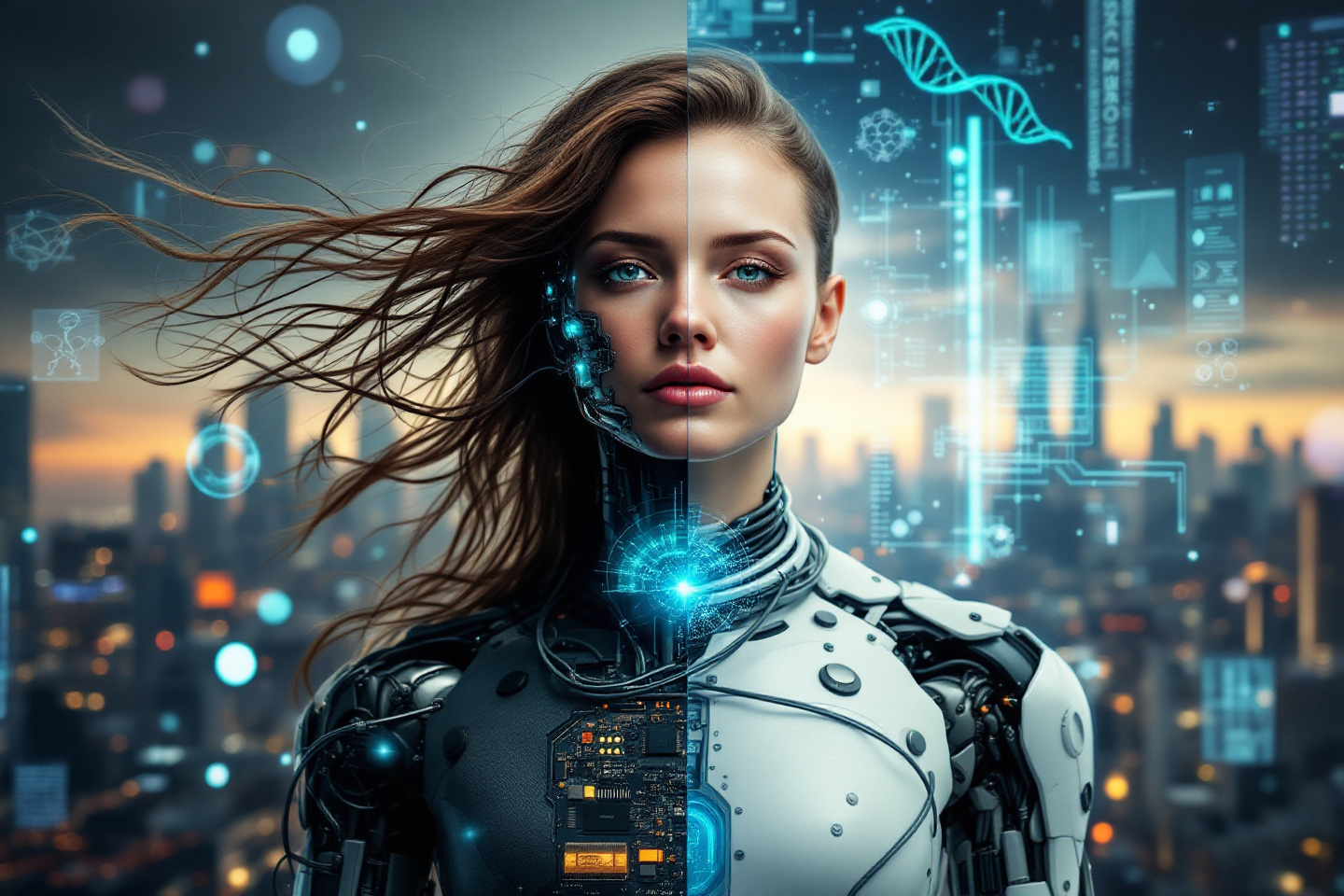A silent war is being waged—a battle not for land, wealth, or power, but for something far more fundamental: our very humanness. As artificial intelligence, genetic modification, and transhumanist technologies rise, we stand at a crossroads. Will we integrate these advancements while preserving our essence, or will we trade away the core of what makes us human?
Let’s explore the hidden battle for our identity, the dangers of technological overreach, and how we can protect the sacred aspects of our existence before they are lost forever.
The War for Consciousness
In a world saturated with digital media, our perceptions are no longer entirely our own. We are subtly conditioned by:
- Mass media shaping opinions on history, science, and morality.
- Algorithms that decide what we see, influencing beliefs without our awareness.
- A culture that prioritizes efficiency and productivity over deep human connection.
The ability to think freely, question, and imagine is at risk. Recognizing these influences is the first step toward reclaiming our intellectual independence.
“The greatest war is not fought on battlefields—it is fought within minds, where control over perception determines the future.”
Enhancing or Replacing Humanity?
Transhumanism—the belief that humans can and should transcend their biological limitations through technology—is no longer a theory but an active movement. What once seemed like science fiction is now reality, with researchers and corporations racing toward advancements that could redefine what it means to be human.
Current transhumanist developments include:
- Brain-Machine Interfaces (BMIs): Projects like Neuralink aim to merge the human brain with artificial intelligence, promising enhanced cognition, direct brain-to-computer communication, and even mind uploading.
- Genetic Engineering: CRISPR and other gene-editing technologies are being used to modify human DNA, eliminating diseases but also opening the door to “designer babies” with enhanced intelligence, strength, and longevity.
- Artificial Organs and Cybernetics: Scientists are developing bionic limbs, synthetic organs, and even artificial eyes capable of seeing beyond the human spectrum, effectively creating the first wave of augmented humans.
- Digital Immortality: Companies are working on ways to upload human consciousness into the cloud, aiming for a future where physical death is no longer the end.
“The line between human and machine is becoming increasingly blurred. Are we evolving—or are we replacing ourselves?”
While these advancements promise breakthroughs in health, longevity, and intelligence, they also come with profound risks:
- Loss of Individual Autonomy: With brain implants and AI integration, who controls the thoughts and decisions of enhanced humans?
- Ethical Dilemmas: Will the wealthy elite gain access to enhancements, creating a society of “upgraded” individuals while the rest remain biologically limited?
- Disconnect from Our Natural Evolution: By relying on technology to replace our limitations rather than embracing them, we may lose the very struggles that shape human character and growth.
Transhumanism is not just about progress—it is about redefining the human experience. The question we must ask is not just whether we can integrate technology but whether we should—and at what cost?
The Power Hidden in Human DNA
Science has long studied human genetics, but new discoveries suggest that our DNA is more than just a biological code—it may be the key to our highest potential. DNA functions as:
- A biological antenna, tuning into fields of information beyond our immediate perception.
- A self-repairing system, capable of healing and adapting in ways technology cannot replicate.
- A storehouse of consciousness, possibly containing memories and knowledge passed through generations.
By tampering with this natural blueprint through genetic editing or synthetic replacements, we may be severing our connection to something far greater than ourselves.
“Before we rush to alter our DNA, perhaps we should first understand its true capabilities—what if we already possess abilities beyond what technology can offer?”
Implications of Losing Human Essence
Beyond the physical and intellectual risks, there is a deeper consequence to over-reliance on technology: the erosion of our spiritual nature. What happens when we:
- No longer rely on intuition because AI makes decisions for us?
- Lose our ability to feel deeply because emotional responses are suppressed by modifications?
- Stop questioning existence because technology provides every answer?
The push to become more efficient and optimized must be weighed against what we stand to lose—our ability to experience life in its raw, unfiltered beauty.
“Divinity is not found in perfection—it is found in the ability to feel, grow, and transcend limitations. To give that away is to lose the very soul of humanity.”
A Call to Conscious Living
The future is not something that simply happens to us—it is something we shape through our choices. If we wish to preserve what makes us uniquely human, we must:
- Engage in Deep Thinking: Question the narratives fed to us and seek knowledge beyond mainstream sources.
- Value Biological Integrity: Be cautious of irreversible modifications to our bodies and DNA.
- Prioritize Human Connection: Foster relationships, emotions, and real-world experiences over virtual alternatives.
- Embrace Conscious Technology Use: Integrate advancements in ways that enhance life rather than replace it.
- Recognize the Sacred Within: Understand that the human experience is more than data, algorithms, and optimization—it is a divine journey of growth and discovery.
“Our humanness is a gift—one that can be preserved, expanded, and celebrated, or one that can be lost forever to the allure of artificial perfection. The choice is ours.”
The Future of Humanity Lies in Our Hands
We are at a pivotal moment in history where we must decide whether to embrace technology responsibly or allow it to redefine what it means to be human. The battle for our humanness is not fought with weapons but with awareness. By choosing to protect our essence, we ensure that the future remains one of freedom, creativity, and deep human experience.
The time to awaken is now. The question is—will we remember who we are before it’s too late?



